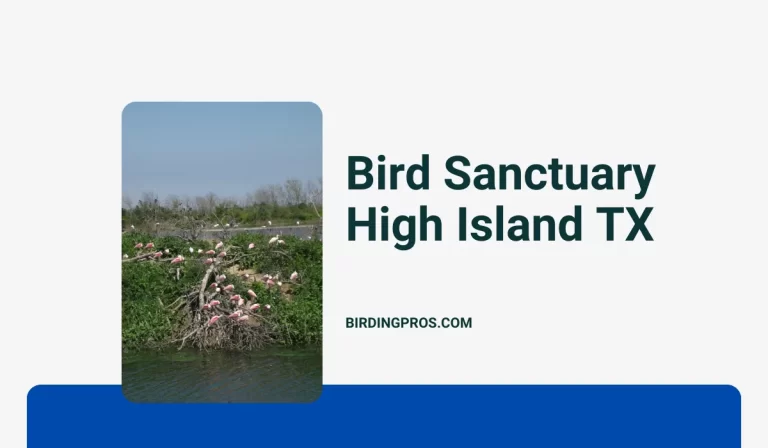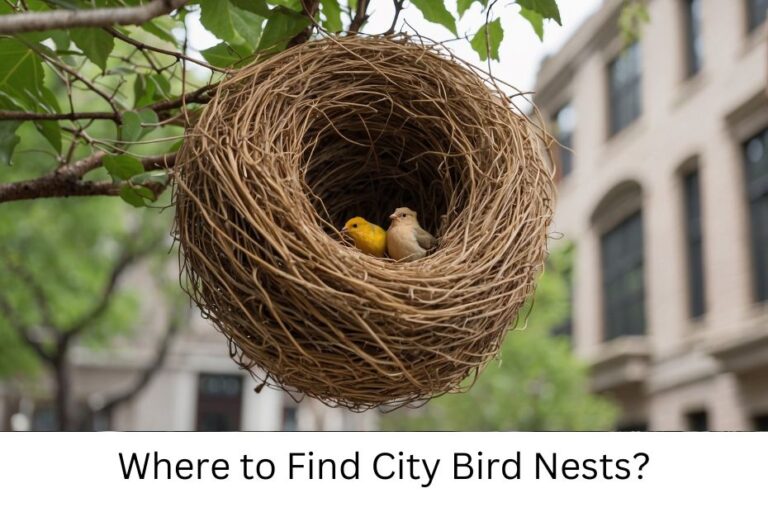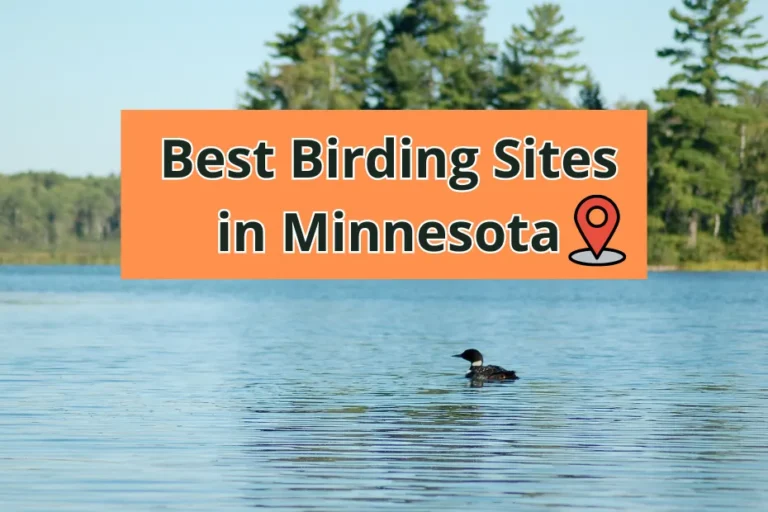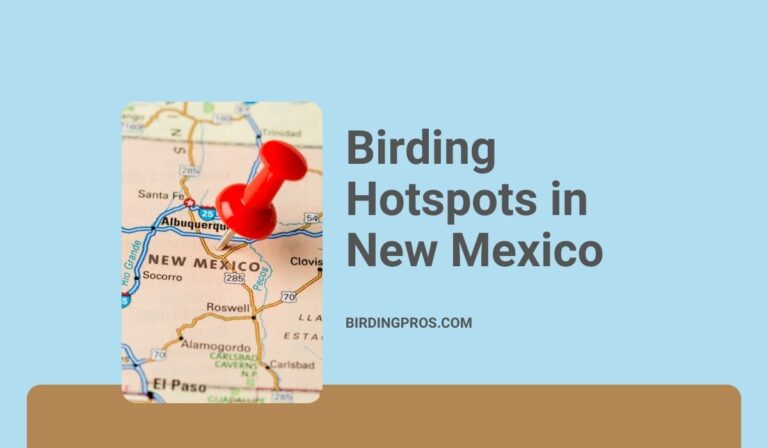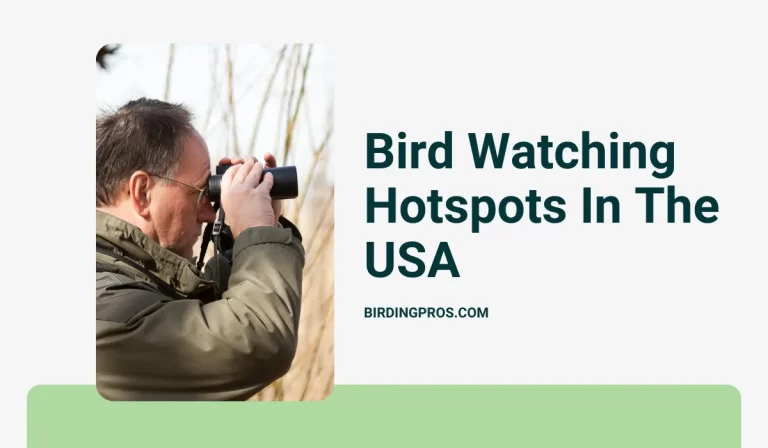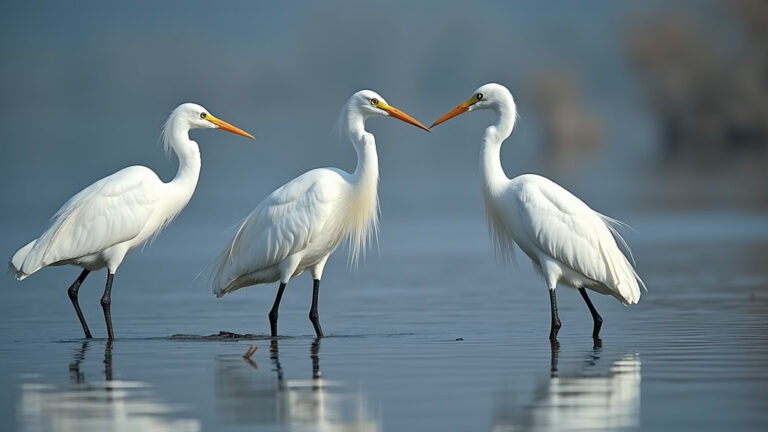Birding Hotspots in Idaho: Discover the Best Sites for Birdwatching
Idaho boasts exceptional birding hotspots such as the Snake River Birds of Prey National Conservation Area and Bear Lake National Wildlife Refuge. These areas offer diverse habitats and abundant bird species for enthusiasts.
Idaho is a birdwatcher’s paradise, featuring varied landscapes that attract a wide range of bird species. The Snake River Birds of Prey National Conservation Area is renowned for its high concentration of raptors. Bear Lake National Wildlife Refuge is another prime location, offering wetlands and meadows that host numerous waterfowl and shorebirds.
Camas National Wildlife Refuge and Market Lake Wildlife Management Area also provide excellent birdwatching opportunities. These spots are ideal for both novice and experienced birders, promising memorable encounters with Idaho’s avian inhabitants. The state’s diverse ecosystems make it a must-visit destination for bird enthusiasts.
Why Idaho Is A Birding Paradise
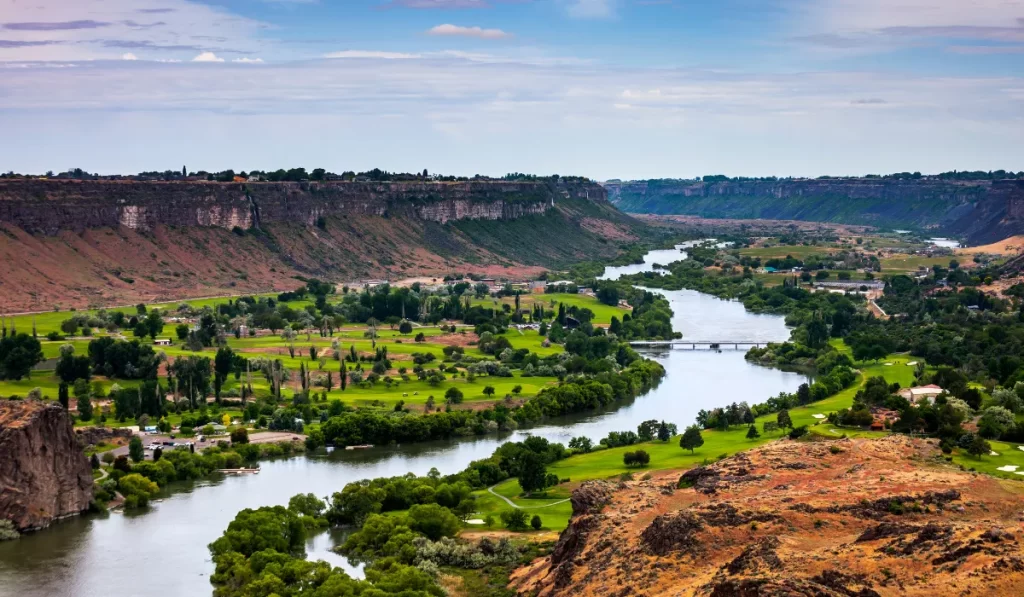
Birding enthusiasts flock to Idaho for its diverse habitats and abundant bird species. From the wetlands of the Snake River to the forests of the Sawtooth Mountains, birding hotspots abound. The state’s varied landscapes offer prime viewing opportunities for both rare and common birds.
Idaho is a hidden gem for birding enthusiasts. Its diverse landscapes, ranging from mountains to wetlands, offer a rich habitat for countless bird species. Birdwatchers can experience an unparalleled array of avian life, making Idaho a true birding paradise.
Diverse Habitats
Idaho’s varied ecosystems support numerous bird species. Each habitat offers unique birdwatching opportunities.
- Forests: Home to owls, woodpeckers, and warblers.
- Wetlands: Attract waterfowl, herons, and cranes.
- Grasslands: Provide refuge for meadowlarks, sparrows, and hawks.
- Mountains: Host eagles, falcons, and alpine songbirds.
Seasonal Migrations
Bird migrations make Idaho a dynamic birding destination. Seasonal changes bring new species to the state.
During spring and fall, migratory birds pass through Idaho in large numbers. These periods are prime times for spotting rare and diverse species. Winter and summer also offer unique birdwatching experiences with resident birds.
Birding Trails And Hotspots
Numerous trails and hotspots make birding accessible. Enthusiasts can explore various regions to find their favorite species.
- Snake River Birds of Prey NCA: Renowned for its raptor population.
- Camas Prairie Centennial Marsh: Known for waterfowl and shorebirds.
- City of Rocks National Reserve: Offers sightings of high-elevation birds.
- Bear Lake National Wildlife Refuge: A haven for waterbirds and songbirds.
Conservation Efforts
Idaho’s dedication to conservation has helped maintain its rich bird populations. Efforts focus on habitat preservation and species protection.
- Protected Areas: National parks and wildlife refuges safeguard critical habitats.
- Research Programs: Studies monitor bird populations and health.
- Community Involvement: Local groups participate in bird counts and habitat restoration.
Birding Events And Festivals
Birding events and festivals add excitement to the birdwatching experience. They provide opportunities for learning and community engagement.
- Snake River Raptor Fest: Celebrates birds of prey with guided tours and talks.
- Great Backyard Bird Count: Encourages public participation in birdwatching.
- Idaho Birding Trail Events: Organized hikes and birding activities along the trail.
Resources For Birders
A variety of resources support birders in Idaho. These tools enhance the birdwatching experience and aid in species identification.
- Field Guides: Comprehensive books on Idaho’s bird species.
- Mobile Apps: Offer real-time identification and birding tips.
- Online Forums: Connect birders with local experts and enthusiasts.
- Guided Tours: Led by knowledgeable naturalists.
Idaho’s unique combination of diverse habitats, seasonal migrations, and dedicated conservation efforts make it a birding paradise. Birders of all levels can find endless opportunities to explore and enjoy the state’s avian wonders.
Top Birding Hotspots In Idaho
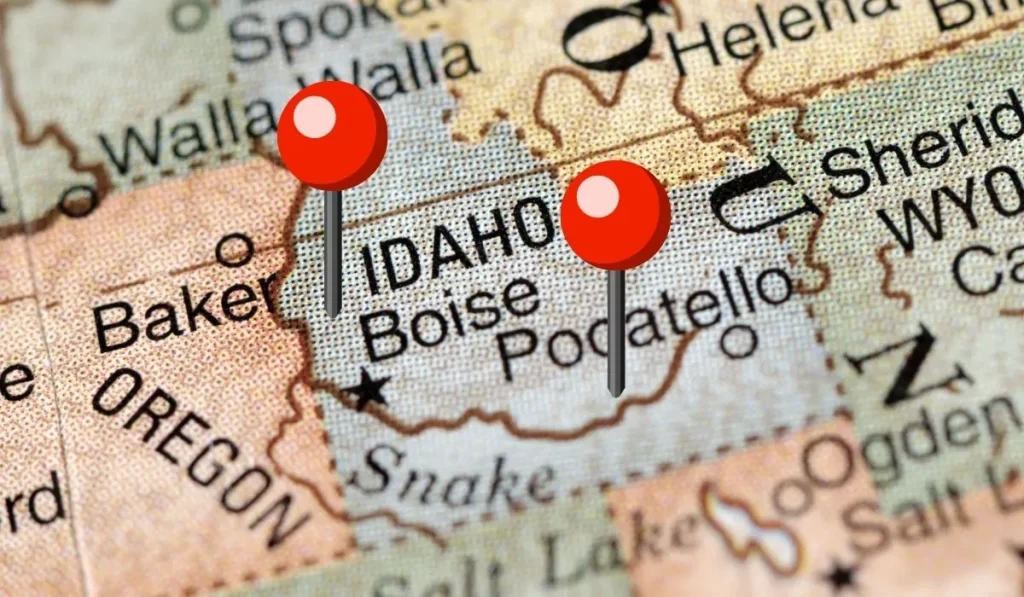
Discover the top birding hotspots in Idaho, offering diverse habitats and abundant bird species. Explore places like Camas National Wildlife Refuge and Sawtooth National Recreation Area for unforgettable birdwatching experiences.
Idaho offers an incredible array of birding hotspots, making it a paradise for bird enthusiasts. From wetlands to mountains, this state is teeming with diverse bird species. Let’s explore some of the top birding destinations in Idaho that promise an unforgettable experience.
Snake River Birds Of Prey National Conservation Area
Discover the Snake River Birds of Prey National Conservation Area, a premier birding hotspot in Idaho. Home to a diverse array of raptors, this conservation area offers stunning views and unparalleled birdwatching opportunities. Ideal for nature enthusiasts seeking a unique birding adventure.
Idaho is a paradise for birdwatchers, and the is a prime destination. Covering over 485,000 acres, this site boasts one of the densest populations of nesting birds of prey in North America. Let’s explore what makes this hotspot so special.
Diverse Bird Species
This conservation area is home to a wide variety of bird species.
- Raptors: Includes eagles, hawks, and falcons.
- Songbirds: Many types of songbirds reside here.
- Waterfowl: Ducks and geese frequent the area.
Scenic Beauty
The landscape here is stunning and diverse.
Rolling hills, deep canyons, and vast plateaus create a perfect setting for birdwatching. The Snake River cuts through the area, adding to its scenic allure.
Ideal Birdwatching Seasons
Different seasons offer unique birdwatching experiences.
- Spring: Best for seeing raptors nesting.
- Summer: Great for spotting fledglings.
- Fall: Ideal for observing migratory birds.
- Winter: Perfect for seeing resident raptors.
Accessibility
Accessibility is a key feature of this site.
- Well-marked trails: Easy to follow.
- Viewing platforms: Convenient for birdwatching.
- Guided tours: Available for deeper insights.
Importance Of Conservation
Conservation efforts are crucial here.
This area serves as a vital habitat for many bird species. Ongoing research and conservation programs ensure the protection of these birds.
Photography Opportunities
Perfect for capturing stunning bird photos.
- Golden hours: Best for lighting.
- Variety of species: Wide range to photograph.
- Scenic backdrops: Enhance your pictures.
Educational Programs
Learn while you explore.
- Workshops: Offer birdwatching tips.
- Educational tours: Provide in-depth knowledge.
- Visitor center: Packed with informative displays.
Local Wildlife
Not just birds, but other wildlife too.
Deer, coyotes, and rabbits can often be seen. This adds another layer of excitement to your birdwatching trip.
Best Viewing Spots
Several spots are ideal for birdwatching.
- Dedication Point: Offers panoramic views.
- Initial Point: Elevated for better bird sightings.
- Swan Falls: Near the river, perfect for waterfowl.
Recommended Gear
Bringing the right gear enhances your experience.
- Binoculars: Essential for spotting distant birds.
- Camera: Capture your sightings.
- Field guide: Helps identify bird species.
Camas National Wildlife Refuge
Camas National Wildlife Refuge offers prime birding hotspots in Idaho. Spot a diverse array of birds in serene wetlands and meadows. Ideal for birdwatchers seeking rich wildlife experiences.
Nestled in the heart of Idaho, offers a birding haven for enthusiasts. The refuge spans over 10,000 acres, featuring diverse habitats perfect for a wide variety of bird species. This hidden gem is a must-visit for anyone passionate about birdwatching.
Abundant Bird Species
Camas National Wildlife Refuge is home to an incredible variety of bird species. Here are some highlights:
- Waterfowl: Enjoy sightings of ducks, geese, and swans, particularly during migration seasons.
- Raptors: Spot eagles, hawks, and owls soaring above the refuge.
- Songbirds: Delight in the melodies of warblers, sparrows, and finches throughout the year.
Prime Birding Seasons
Different times of the year offer unique birding experiences. Here’s what to expect:
- Spring: Witness the arrival of migratory birds and the beginning of nesting season.
- Summer: Observe young birds as they fledge and learn to fly.
- Fall: Enjoy the spectacle of birds preparing for their southward migration.
- Winter: Spot hardy species that brave the colder months.
Birding Trails And Viewing Areas
Camas National Wildlife Refuge offers several trails and viewing spots. These locations are ideal for birdwatching:
- Marsh Trail: This trail provides access to wetland areas, perfect for observing waterfowl.
- Prairie Loop: A great spot for seeing grassland birds and raptors.
- Observation Deck: Offers a panoramic view of the refuge, ideal for spotting a variety of species.
Tips For Birdwatchers
Maximize your birding experience with these tips:
- Bring Binoculars: Essential for getting a closer look at distant birds.
- Early Morning Visits: Birds are most active during the early hours.
- Stay Quiet: Birds are more likely to be visible if you remain silent and still.
- Use a Field Guide: Helps with identifying different bird species.
Conservation Efforts
The refuge is dedicated to preserving bird habitats. Conservation initiatives include:
- Wetland Restoration: Ensures healthy environments for waterfowl.
- Invasive Species Management: Protects native plant and bird populations.
- Research Programs: Monitors bird populations and health, guiding conservation efforts.
Exploring Camas National Wildlife Refuge offers an unforgettable birding adventure. The diverse species, prime birding seasons, and dedicated conservation efforts make it a top destination.
Market Lake Wildlife Management Area
Market Lake Wildlife Management Area in Idaho offers prime birding hotspots. Spot diverse species, including waterfowl and shorebirds, in their natural habitat. The area attracts birdwatchers year-round, making it a must-visit for enthusiasts.
Idaho is a haven for birdwatchers, offering diverse landscapes and rich avian life. One standout location is the. This gem provides an excellent opportunity to witness Idaho’s birdlife in its natural habitat.
Location And Accessibility
Market Lake Wildlife Management Area is conveniently located near Roberts, Idaho. It’s easily accessible for both local and visiting birders.
- Near Roberts, Idaho: The area is just off Interstate 15, making it easy to reach.
- Ample Parking: Visitors will find plenty of parking spaces.
- Well-Marked Trails: Clearly marked trails ensure you don’t lose your way.
Bird Species To Watch
Birdwatchers can spot a variety of species throughout the year. Here are some notable birds you might encounter.
- Migratory Birds: Seasonal migrations bring in species like Sandhill Cranes and Snow Geese.
- Waterfowl: Ducks, geese, and swans are common in the wetlands.
- Raptors: Birds of prey such as hawks and eagles are often seen hunting.
Best Time To Visit
The best time to visit Market Lake Wildlife Management Area depends on the bird species you wish to see.
Spring and Fall are ideal for witnessing migratory birds. Early mornings and late afternoons provide the best light and activity levels for birdwatching.
Amenities And Facilities
The area is well-equipped to make your birding experience enjoyable and comfortable.
- Observation Towers: These offer elevated views for better birdwatching.
- Picnic Areas: Perfect spots to rest and enjoy a meal.
- Restrooms: Clean and conveniently located facilities.
Tips For Birdwatching
Here are a few tips to enhance your birdwatching experience at Market Lake Wildlife Management Area.
- Bring Binoculars: Essential for spotting distant birds.
- Wear Camouflage Clothing: Helps you blend in with the surroundings.
- Stay Quiet: Minimizes disturbance to the birds.
Market Lake Wildlife Management Area is a must-visit for any birdwatcher. Its accessibility, diverse bird species, and visitor-friendly amenities make it an exceptional spot for birding in Idaho.
Bear Lake National Wildlife Refuge
Bear Lake National Wildlife Refuge offers a prime birding spot in Idaho. Discover diverse avian species in their natural habitat. Birdwatchers will enjoy the serene landscapes and abundant wildlife.
Is a hidden gem for bird enthusiasts visiting Idaho. The refuge offers diverse habitats, attracting a variety of bird species. Nestled near the Idaho-Utah border, this sanctuary promises an unforgettable bird-watching experience.
Location And Accessibility
Bear Lake National Wildlife Refuge is conveniently located in southeast Idaho. The region is easily accessible by car, making it a perfect day trip destination.
- Nearest Town: Montpelier, Idaho: Offers lodging and dining options.
- Main Access Road: U.S. Highway 89: Connects visitors to the refuge.
- Parking Areas: Available at designated spots: Ensures hassle-free visits.
Bird Species Diversity
The refuge boasts a rich diversity of bird species. Depending on the season, birders can observe a variety of migratory and resident birds.
- Waterfowl: Ducks, geese, and swans: Frequent the refuge’s wetlands.
- Shorebirds: Sandpipers and plovers: Found along the shorelines.
- Raptors: Eagles and hawks: Often spotted soaring above.
Best Times To Visit
Timing your visit can enhance your birding experience. Certain seasons offer peak opportunities for viewing specific species.
Spring and fall are ideal for witnessing migratory birds. Winter brings a chance to see hardy species that stay year-round.
Bird Watching Tips
Maximize your birding experience with some helpful tips. Proper preparation and awareness can make a significant difference.
- Bring Binoculars: Essential for spotting distant birds.
- Dress in Layers: Weather can be unpredictable.
- Stay Quiet: Minimizes disturbance to wildlife.
Facilities And Amenities
Bear Lake National Wildlife Refuge is equipped with essential facilities. These amenities ensure a comfortable visit for all birders.
- Visitor Center: Offers maps and information: Start your journey here.
- Restrooms: Available at key locations: Ensures convenience.
- Picnic Areas: Perfect for a lunch break: Enjoy the natural surroundings.
Conservation Efforts
The refuge is dedicated to conserving wildlife and their habitats. These efforts help maintain the area’s ecological balance.
- Habitat Restoration: Ongoing projects: Enhance bird habitats.
- Educational Programs: Raise awareness: Encourage sustainable practices.
- Volunteer Opportunities: Get involved: Contribute to conservation.
Bear Lake National Wildlife Refuge is a must-visit for birders in Idaho. Its diverse habitats, rich birdlife, and visitor-friendly amenities make it an ideal destination.
City Of Rocks National Reserve
City of Rocks National Reserve is a prime birding hotspot in Idaho. It offers diverse habitats and sightings of unique bird species. Bird enthusiasts can enjoy observing a variety of avian life year-round.
The in Idaho is a paradise for bird enthusiasts. This unique landscape, with its striking rock formations and diverse habitats, attracts a wide variety of bird species. Whether you’re a seasoned birder or a curious novice, this reserve offers an unforgettable birding experience.
Unique Bird Species
The City of Rocks is home to many unique bird species. Here, you’ll find:
- Cassin’s Finch: Known for its vibrant red head and melodious song.
- Mountain Bluebird: Striking blue feathers make it easy to spot.
- Virginia’s Warbler: Often seen flitting through the underbrush.
- Prairie Falcon: Frequently soaring high above the rock formations.
Best Birding Spots
Several spots within the reserve are perfect for bird-watching. Some of the top locations include:
- Bath Rock: A popular area where many birds congregate.
- Window Arch: Offers spectacular views and bird-watching opportunities.
- Elephant Rock: Known for its high bird activity, especially in the morning.
Birding Tips And Tricks
To make the most of your birding adventure, consider these tips:
- Bring Binoculars: Essential for spotting distant or small birds.
- Wear Camouflage Clothing: Helps you blend in and avoid startling birds.
- Go Early Morning: Birds are most active during this time.
- Stay Quiet: Reduces the chance of scaring birds away.
Seasonal Birding Highlights
Different seasons bring different birding opportunities. Here’s what to expect:
- Spring: Many migratory birds return, making it a prime time for birding.
- Summer: Birds are in full song and easier to spot.
- Fall: Migratory birds pass through, offering a chance to see rarer species.
- Winter: Resident birds are more visible against the snowy backdrop.
Birding Equipment Essentials
To ensure a successful birding trip, pack these essentials:
- Field Guide: Helps identify different bird species.
- Notebook: Useful for jotting down observations.
- Camera: Capture memorable bird sightings.
- Water and Snacks: Stay hydrated and energized during your outing.
Conservation Efforts
The City of Rocks is committed to bird conservation. Key efforts include:
- Habitat Restoration: Ensures a healthy environment for birds.
- Public Education: Raises awareness about bird conservation.
- Research Programs: Supports studies on bird populations and behaviors.
Discovering the avian wonders of the City of Rocks National Reserve is a rewarding experience. Pack your gear, follow the tips, and enjoy the diverse birdlife this incredible location has to offer.

Credit: www.researchgate.net
Tips For Birdwatching In Idaho
Discover Idaho’s top birding hotspots like the Camas National Wildlife Refuge and Snake River Birds of Prey National Conservation Area. Explore diverse habitats and spot species such as Sandhill Cranes and Peregrine Falcons. Enjoy nature trails offering fantastic birdwatching opportunities throughout the state.
Birdwatching in Idaho offers a unique experience with its diverse habitats and rich avian population. Whether you’re a seasoned birder or a novice, the Gem State has something for everyone. Here are some practical tips to enhance your birdwatching adventure in Idaho.
Best Times To Birdwatch In Idaho
Choosing the right time can make a huge difference:
- Early Morning: Birds are most active during dawn.
- Spring and Fall: These seasons are peak times for bird migration.
- Late Afternoon: Birds often become active again before sunset.
Essential Gear For Birdwatching
Having the right equipment is key to a successful birdwatching trip:
- Binoculars: Essential for spotting distant birds.
- Field Guide: Helps in identifying species.
- Notebook and Pen: Useful for jotting down observations.
- Camera: Capture those unforgettable moments.
Knowing Local Bird Species
Understanding which birds you might encounter can enrich your experience. Idaho is home to a variety of species including the Mountain Bluebird, Great Grey Owl, and American Kestrel. Familiarize yourself with these birds to make identification easier during your outings.
Respecting Wildlife And Environment
Always remember to be a responsible birdwatcher:
- Keep Distance: Avoid disturbing the birds.
- Stay on Trails: Protect natural habitats by sticking to designated paths.
- No Feeding: Feeding birds can harm their natural behaviors.
Joining Local Birdwatching Groups
Being part of a birdwatching community can be beneficial. Many local groups offer guided tours, workshops, and social events. This can be a great way to learn from experienced birders and discover new hotspots.
Using Birdwatching Apps
Technology can enhance your birdwatching:
- EBird: Track your sightings and share with the community.
- Merlin Bird ID: Helps in identifying birds based on appearance and sound.
- Audubon Bird Guide: Offers extensive information on different species.
Planning Your Visit
Preparation is crucial for a smooth trip:
- Check Weather: Ensure favorable conditions for birdwatching.
- Bring Snacks and Water: Stay hydrated and energized.
- Dress Appropriately: Wear layers and comfortable shoes.
Patience And Persistence
Birdwatching requires a lot of patience. Birds can be elusive, so be prepared to wait. Sometimes, it takes persistence to spot rare species. Enjoy the process and take in the natural beauty around you.
Read More: Birding Hotspots in New Mexico: 10 Best Hotspots
Additional Resources
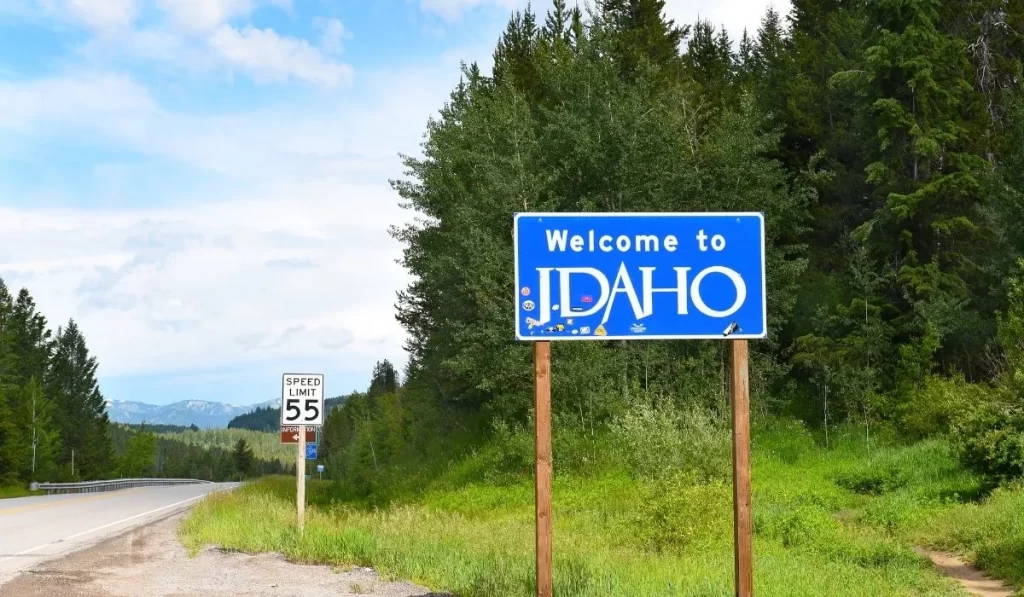
Discover valuable links and guides to enhance your birding experience in Idaho. Explore maps, local birding groups, and expert tips for spotting rare species.
Looking to enhance your birding experience in Idaho? The state’s varied landscapes offer plenty of spots for birdwatchers. But what about additional resources to make your adventure even better? Here are some valuable tools and communities to help you get the most out of your birding trips.
Local Birding Clubs And Societies
Local birding clubs and societies are an excellent way to connect with fellow birders. These organizations often have resources and events tailored to the region.
- Golden Eagle Audubon Society: Offers guided birding tours and educational programs.
- Southwestern Idaho Birders Association: Hosts monthly meetings and field trips.
- Idaho Birding Trails: Provides maps and information on popular birding locations.
Online Birding Communities
Online communities offer a wealth of information and the chance to engage with other birding enthusiasts.
- Birding Idaho Facebook Group: A vibrant community sharing tips and sightings.
- EBird: A comprehensive database for tracking bird observations.
- Reddit’s r/birding: Ideal for asking questions and sharing experiences.
Bird Identification Apps
Using bird identification apps can make your birdwatching more efficient and enjoyable. These tools help you quickly identify species and record your sightings.
- Merlin Bird ID: Powered by Cornell Lab, it offers photo and sound identification.
- Audubon Bird Guide: Features extensive information on North American birds.
- IBird Pro: Contains detailed illustrations and descriptions.
Field Guides
Field guides are essential for any serious birder. They offer detailed descriptions and images to help identify birds accurately.
For this section, let’s consider some recommended guides:
- “National Geographic Field Guide to the Birds of North America”: Comprehensive and easy to use.
- “Sibley Guide to Birds”: Known for its detailed illustrations.
- “Peterson Field Guide to Birds of Western North America”: Focuses on species found in the western U.S.
Birding Equipment
Having the right equipment can significantly enhance your birding experience. Here are some must-have items:
- Binoculars: Essential for spotting birds from a distance.
- Spotting Scope: Useful for observing birds in large open areas.
- Birding Journal: Perfect for keeping track of your sightings and notes.
Conservation Organizations
Supporting conservation organizations can help protect bird habitats and ensure future birding opportunities.
- The Nature Conservancy Idaho: Works on preserving vital bird habitats.
- Idaho Fish and Game: Provides information on local conservation efforts.
- American Bird Conservancy: Focuses on protecting birds and their habitats globally.
Each location offers a unique glimpse into the state’s rich avian diversity. Grab your binoculars and explore these incredible sites!
Frequently Asked Questions
Where Is The Most Wildlife In Idaho?
The Frank Church-River of No Return Wilderness has the most wildlife in Idaho. It hosts elk, bears, wolves, and mountain lions.
What State Has The Best Birding?
Florida offers the best birding. It boasts diverse habitats and numerous bird species, including rare migratory birds. Popular spots include Everglades National Park and Merritt Island National Wildlife Refuge.
What Time Of Year Is Best For Birding?
Spring and fall are ideal for birding. Migratory birds are most active during these seasons. Warmer weather also attracts more species.
Where Is The Best Place To Live For Bird Watching?
Costa Rica is a top destination for bird watching. It boasts diverse habitats and over 900 bird species. The Monteverde Cloud Forest and Tortuguero National Park are prime locations for enthusiasts.
Conclusion
Idaho offers incredible birding hotspots for enthusiasts. Explore diverse habitats and enjoy sightings of unique bird species. Plan your trip now and experience Idaho’s natural beauty. Whether you’re a beginner or a seasoned birder, Idaho’s birding locations promise unforgettable adventures and rich wildlife encounters.
Happy bird watching!
Reference:
Idaho Birding Trail Guidebook Now Available
Birdwatching & Wildlife Viewing Spots in Idaho

